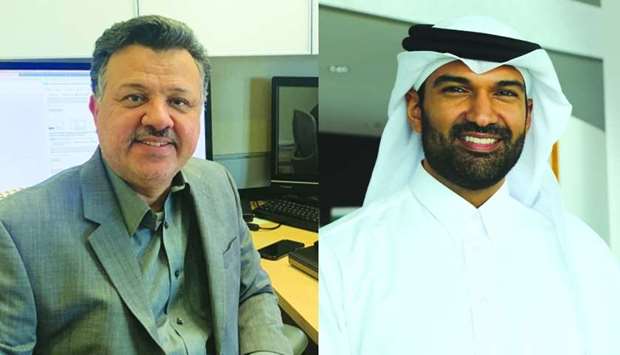Researchers at Sidra Medicine are developing Qatar’s first national report on the prognosis and molecular subtypes of breast cancer, aimed at understanding the high risk of development of breast cancer among women in Qatar as a result of genetic, environmental and lifestyle factors.
According to Qatar National Cancer Registry, breast cancer, the most common malignancy among women in the country currently, represented 17% of the total number of cancer cases in 2016.
The two-year study is being led by Dr Naser Elkum, director, Biostatistics and Clinical Epidemiology. He is working in collaboration with Dr Salha M Bujassoum, senior oncology consultant and head, Genetic Cancer Programme and Breast Cancer Programme at the National Centre for Cancer Care and Research, Hamad Medical Corporation (HMC).
“Having reviewed cancer registries and patient records from HMC, we found that the median age of breast cancer among women who have been diagnosed in Qatar is 47 years, which is much younger when compared to the median age of 63 in Western countries,” Dr Elkum said.
His study has sought to identify the molecular characteristics of tumours and the prognosis for over 1,300 breast cancer patients in Qatar by examining the distribution of breast cancer molecular subtypes and their associations with clinical and pathological characteristics.
"About 10% of cases of breast cancer may be due to a mutation in genes caused by a genetic defect or because of genetic factors in women who have a history of the disease in a first-degree relatives such as mothers, sisters or daughters," said Dr Bujassoum.
The Qatar-based study has already shown that certain breast cancer subtypes are more common and in higher incidences compared to South Africa, China, Europe and Caucasian women in North America.
“Breast cancer is an important area of research for Sidra Medicine that can potentially be treated by Precision Medicine interventions. A knowledge of the underlying causes of breast cancer in this population will be key to developing health policies, support services and treatment protocols that are tailored to each patient’s needs, and that help us identify women in the population who may be at higher risk for early intervention and treatment,” said Dr Khalid Fakhro, acting chief research officer at Sidra Medicine.

